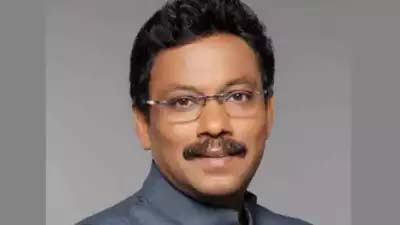In a historic event at Rashtrapati Bhavan, Prime Minister Narendra Modi was sworn in for his unprecedented third term, accompanied by a cohort of 72 ministers constituting Modi Sarkar 3.0.
The following day witnessed a notable shift as JP Nadda assumed responsibility for the Union Chemicals and Fertilizers Ministry, formerly overseen by Mansukh Mandaviya. This transition marked Nadda’s induction into the new Council of Ministers of the NDA government, signaling an imminent quest within the BJP for a fresh party president, spurred by the recent underwhelming performance in the Lok Sabha elections.
The BJP’s ambitious ‘400-paar dream’ was thwarted by the collective might of the INDIA alliance, resulting in a marginal decline in national vote share from 37.3% in 2019 to 36.6% in 2024. This setback translated into a reduction of 63 seats, dropping the party’s tally from 303 to 240, falling notably short of the halfway mark.
In stark contrast, the Congress managed to incrementally increase its vote share from 19.5% to 21.2%, a significant feat highlighted by nearly doubling its seat count from 52 to 99.
In the aftermath of this electoral setback, scrutiny intensified from the RSS, the ideological progenitor of the BJP, placing JP Nadda’s leadership under the microscope.
With Nadda’s reintegration into the Cabinet, the spotlight now shifts towards the impending selection of a new BJP chief, in adherence to the party’s principle of “one man, one post.”
Speculation runs rife regarding potential contenders for the coveted position, with names like Manoharlal Khattar, Shivraj Singh Chouhan, Anurag Thakur, and BL Santosh initially thrown into the ring. However, with Khattar and Chouhan securing ministerial berths, focus narrows onto Anurag Thakur, Tarun Chugh, Sunil Bansal, and Devendra Fadnavis as the primary contenders.
An emerging figure in the discourse is Vinod Tawde, hailing from Maharashtra and wielding considerable influence within the party ranks. Tawde’s astute leadership, honed through his tenure in the Akhil Bharatiya Vidyarthi Parishad (ABVP), positions him as a compelling choice amidst the ongoing deliberations.
Meanwhile, Anurag Thakur, despite being sidelined from the Cabinet, emerges as a formidable candidate, drawing from his extensive organizational experience as the former president of the BJP’s youth wing.
The resurgence of Vinod Tawde, once overlooked but now a frontrunner, underscores the fluid dynamics within the BJP’s leadership landscape. Chandrakant Patil’s endorsement further bolsters Tawde’s prospects, hinting at an imminent elevation to a position of greater responsibility.
As deliberations continue, the BJP weighs its options meticulously, cognizant of the pivotal role the new president will play in steering the party’s course amidst evolving political dynamics.




